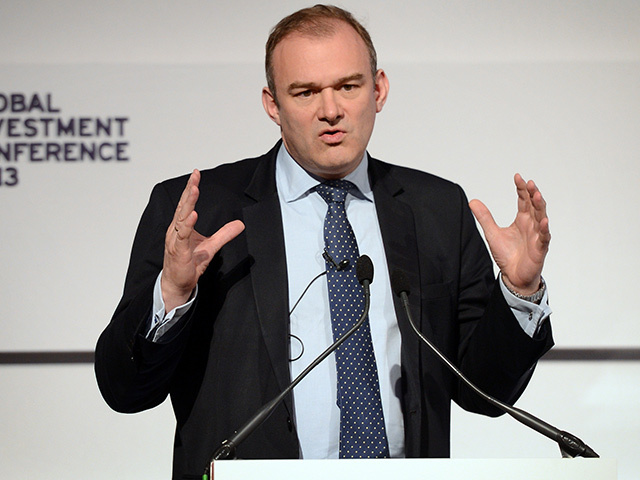
UK North Sea gas fields could be forced to shut down if a Russian oligarch ignores a UK Government demand to sell them.
Energy Secretary Ed Davey yesterday warned Dea UK its operating licences may be revoked by the UK Government unless owner LetterOne, led by billionaire Mikhail Fridman, sells up within six months.
The threat affects five Dea-operated gas fields – Breagh, Cavendish, Clipper South, Topaz and Windermere – and comes as the UK offshore industry is already struggling to safeguard investment and jobs in the wake of a sharp plunge in oil prices.
North Sea operators have slashed their budgets and made savage job cuts, with huge implications for energy service firms, as they adapt to a radically different trading climate.
It is just over a month since German utility RWE closed the sale of oil and gas production arm RWE Dea to Mr Fridman, ending months of uncertainty over whether the £3.7billion deal would go ahead.
The UK Government tried to block part of the transaction at the 11th hour, citing possible sanctions against the new owner.
Yesterday’s warning from Mr Davey ratchets up the ante in a standoff that some Russian businessmen say shows Russian capital is no longer welcome in the west.
After a showdown with President Vladimir Putin over Ukraine, the prospect of a Russian buying North Sea assets is politically unpalatable for 10 Downing Street, especially so close to a general-election.
It is understood Prime Minister David Cameron may have intervened in attempt to persuade Mr Fridman to think again.
A statement released by the Department of Energy and Climate Change said: “The secretary of state, Ed Davey, has today notified Dea UK and LetterOne that he proposes to revoke Dea UK’s North Sea petroleum licences unless LetterOne arranges for a further change of control of the Dea UK gas fields in the North Sea.
“This decision was taken after a thorough review of all relevant information as well as obtaining cross-government views.
“Under the terms of the licenses held by Dea UK, Dea UK and LetterOne now have three months to effect a further change of control. However, the secretary of state has offered to extend this period to six months and he awaits LetterOne’s response to this offer.”
A spokesman for Luxembourg-based LetterOne, whose L1 Energy oil and gas arm is headed up by former BP chief executive Lord Browne, refused to comment.
Mr Davey’s stance reflects deep unease within the cabinet about Putin’s actions in Ukraine, where more than 6,000 people have been killed in fighting between government forces and pro-Russian separatists. Moscow denies backing the rebels.
The threat to revoke licences is thought to have been influenced by a case in 2010, when the North Sea Rhum gas field was shut down because of sanctions against its Iranian co-owner.
Fields operated by Dea UK, including its 70%-owned Breagh asset, are responsible for 3-5% of total UK gas production.
The company also has shares in other producing gas fields, as well as in fields which are currently being explored.
Ukrainian-born Mr Fridman made his fortune in Russia after the Soviet Union collapsed in 1991.
The 50-year-old is ranked by Forbes as the world’s 68th richest person, with a fortune of £9.8billion. His business partner, German Khan, 53, is ranked 133rd with £6.4billion.
Both men studied at the Moscow Institute of Steel and Alloys before founding the Alpha Group in 1989.
It went on to become one of Russian’s largest privately-owned investment groups.
Alpha was a key partner in transforming TNK-BP into Russia’s third largest oil and gas producer in a joint venture with UK oil giant BP.
Relations between the partners soured, including an incident with the venture’s then chief executive Bob Dudley, now head of BP, having to flee the country in 2008.
In 2013, TNK-BP was sold to state-backed Rosneft. It is thought Mr Fridman and Mr Khan made more than £8.4billion on the deal. They used the proceeds to found LetterOne, with £6billion to spend on oil and gas assets.
Mr Fridman has tried to allay UK worries by grouping the assets at the centre of the dispute in a Dutch foundation, a step he says insulates them from any possible sanctions.
Recommended for you
